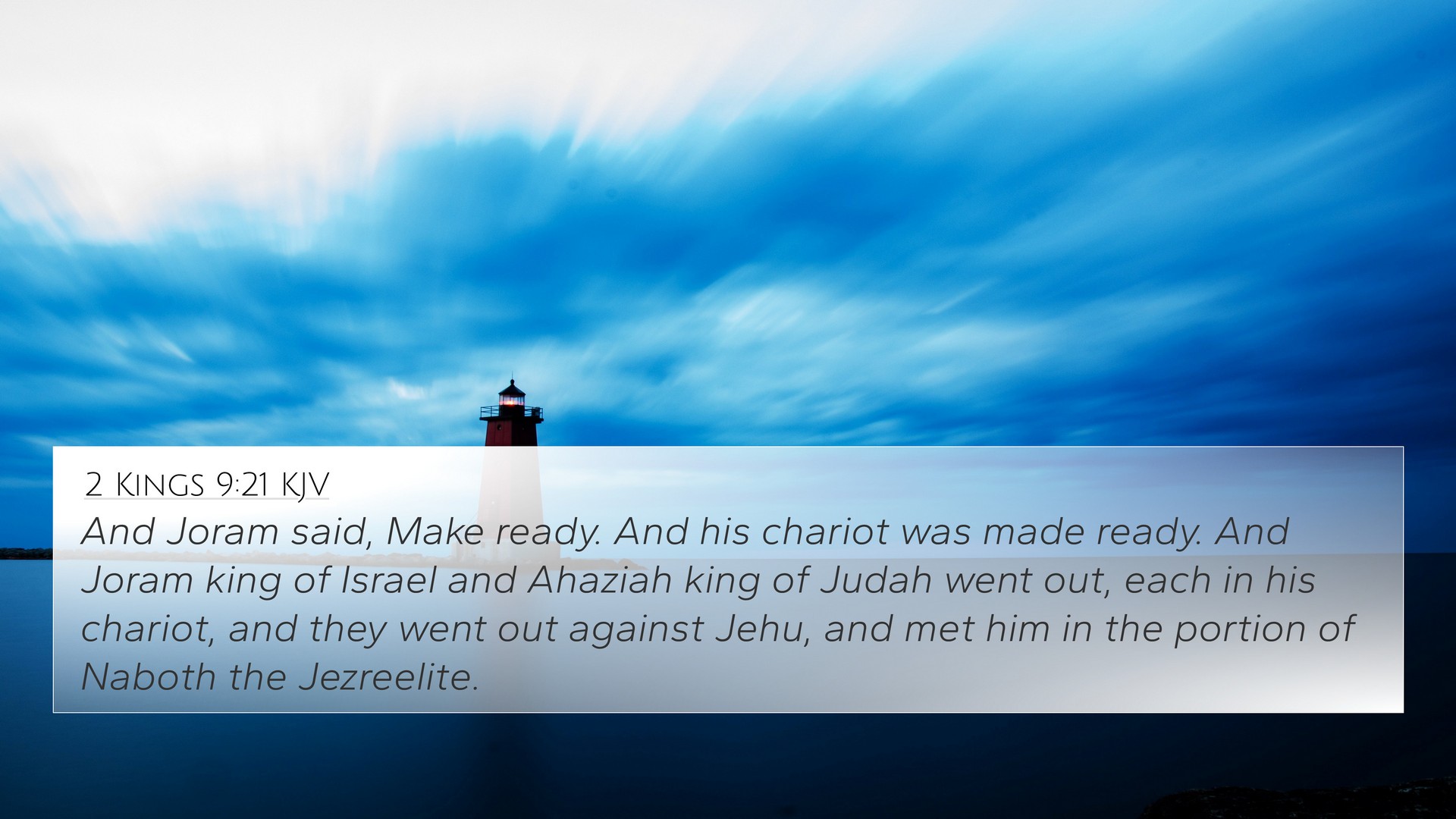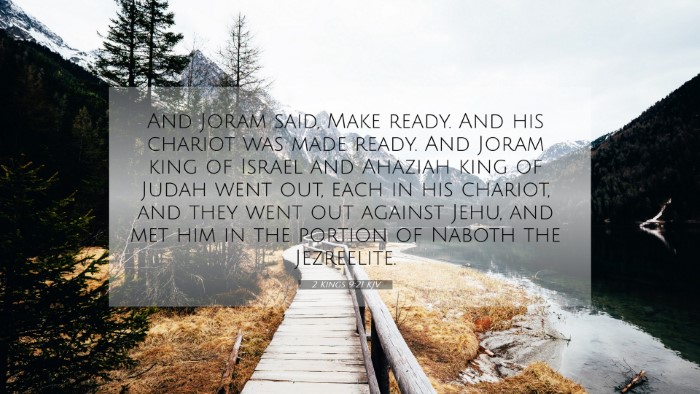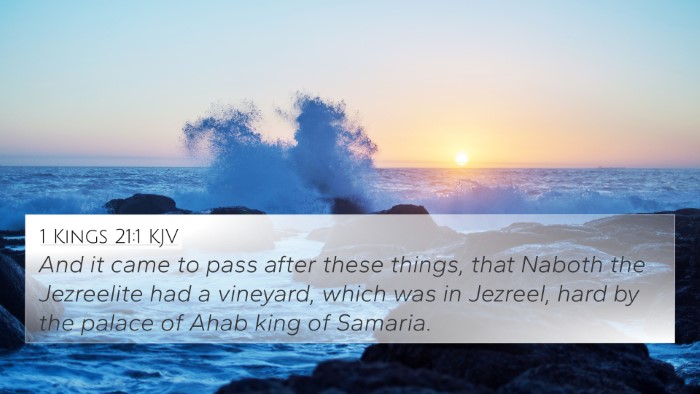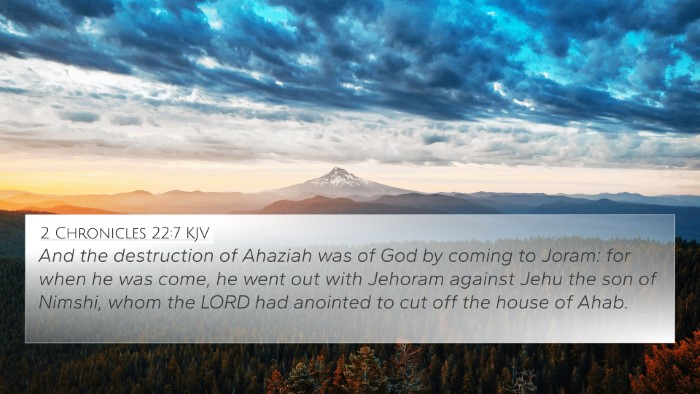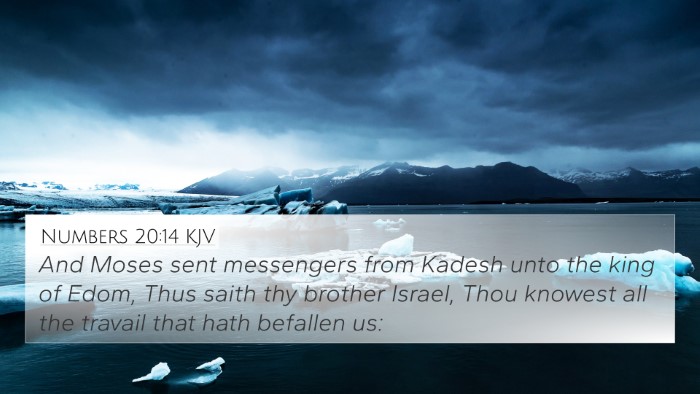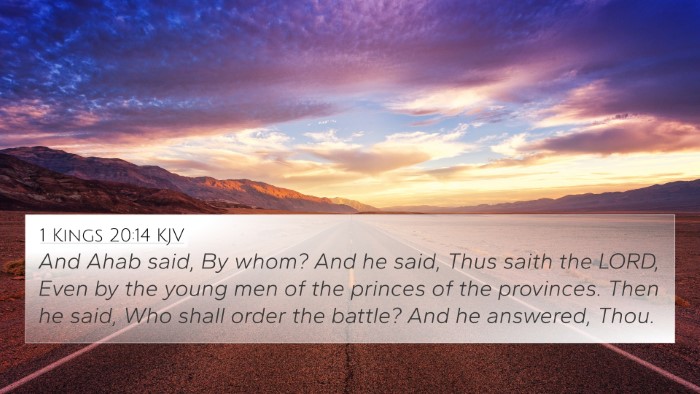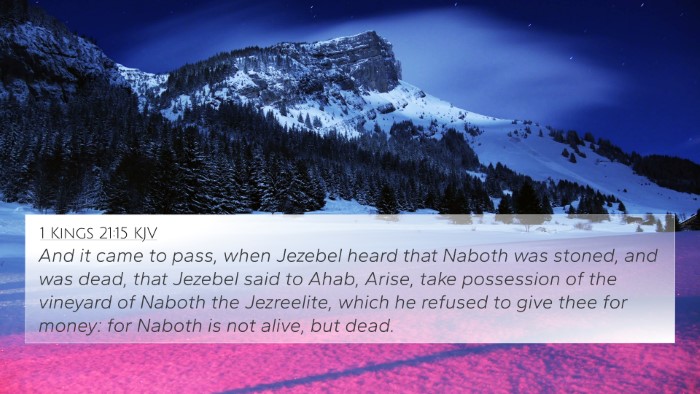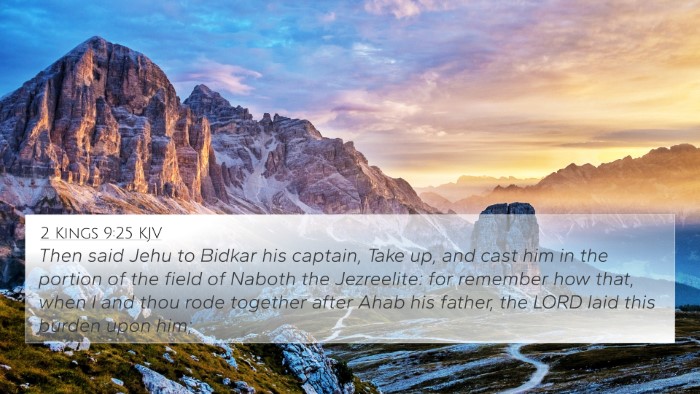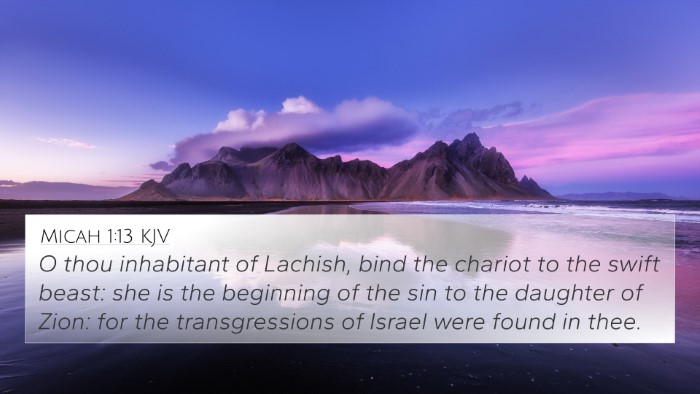Understanding 2 Kings 9:21
The verse 2 Kings 9:21 states, "And Joram said, Make ready. And his chariot was made ready. And Joram king of Israel and Ahaziah king of Judah went out, each in his chariot, and they went out to meet Jehu, and met him in the portion of Naboth the Jezreelite." This passage captures a tension-filled moment in Israel's history where significant events unfold under God’s sovereign direction.
Context and Setting
To grasp the meaning behind this verse, it is crucial to understand the context. Jehu was anointed by the prophet Elisha to be king over Israel and to execute judgment on the house of Ahab. This judgment was necessitated by Jezebel's idolatry and the moral decline of the northern kingdom of Israel.
The Kings in the Passage
- Joram (or Jehoram): King of Israel, a son of Ahab, who continued in the sinful ways of his father.
- Ahaziah: King of Judah, who allied with Joram, symbolizing the political and spiritual deterioration among God's people.
Interpretation and Analysis
Here are insights into the significant themes and details presented in this verse:
- Divine Judgment: The urgency of Joram and Ahaziah's response to Jehu signifies their awareness of the divine judgment that was imminent. This highlights the seriousness of God’s interventions in human history.
- Chariot Symbolism: The use of chariots represents both authority and the act of engaging in battle, underscoring the tension in Israel at the time.
- Meeting in Naboth's Portion: This location alludes to Naboth's unjust death at Ahab's orders, reminding readers of past injustices and God's judgment toward these actions.
Cross-References
The verse serves as a pivotal moment connected to various other scriptures. Some notable cross-references include:
- 1 Kings 21: The account of Naboth’s vineyard and God's subsequent judgment.
- 2 Kings 9:1-3: Jehu’s anointing as king.
- 2 Kings 8:25-29: The historical context of Ahaziah and Joram's reigns.
- 1 Kings 18:17-19: Elijah’s confrontation with Ahab reflects the ongoing spiritual warfare.
- 2 Kings 9:30-37: The fulfillment of Jehu's destiny and the downfall of Jezebel.
- 2 Chronicles 22:7-9: The account of Ahaziah’s actions and how they were in line with Ahab's legacy.
- Ezekiel 18:30: A call for repentance aligns with the themes of judgment in 2 Kings.
Thematic Connections
The thematic elements in 2 Kings 9:21 can provide a framework for further study and reflection:
- Leadership and Responsibility: The actions of both kings demonstrate the heavy burden of leadership and its moral responsibilities to God and the people.
- Judgment and Mercy: While this moment reflects judgment, it also opens avenues for understanding God’s mercy and call to repentance.
- Divine Sovereignty: The unfolding events highlight God's control over nations and historical trajectories.
Application for Today
Reflecting on 2 Kings 9:21, believers can draw lessons about the consequences of sin, the nature of divine judgment, and the importance of repentance. A deeper understanding through cross-referencing other scriptures enriches one’s faith and encourages a commitment to righteousness.
Tools for Cross-Referencing Bible Verses
For further exploration of how to connect various scriptures, consider utilizing:
- Bible Concordance: A useful tool for finding words and locating specific verses.
- Bible Cross-Reference Guide: Provides a systematic approach to identifying related verses.
- Bible Chain References: Follows themes or concepts throughout the Bible.
- Cross-Reference Bible Study Methods: Techniques to guide your personal or group Bible studies.
Conclusion
The richness of scripture like 2 Kings 9:21 reveals layers of meaning when explored with other biblical texts. By understanding its context, examining its characters, and employing effective cross-referencing, believers can deepen their comprehension of God's word and how it applies to their lives today.
